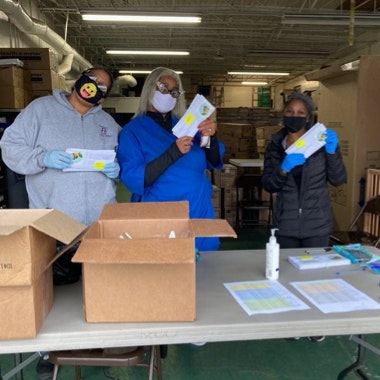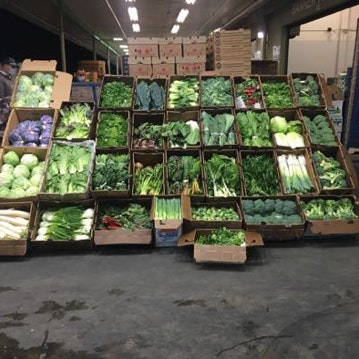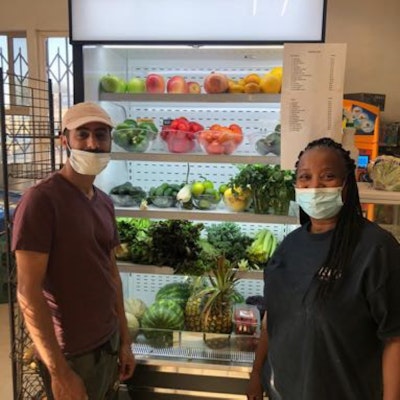The Saba Grocers Initiative distributed 1,000 Saba Food Cards worth
$250 each to residents living in neighborhoods with high COVID rates. Closed-loop restricted access cards were developed by Saba to be used at
26 independently-owned stores across the City of Oakland. They were accompanied by COVID kits that included 2 masks and an 8oz bottle of hand sanitizer. In addition, Saba Grocers Initiative installed 13 hand sanitizer stations at 13 neighborhood stores.
In addition to the
food cards, the program worked with 7 corner stores to introduce fresh produce. Weekly produce deliveries were made to 7 corner stores on a
weekly basis, as well as flyers, $30 coupons, and produce promotional materials. Also, essential grocery subsidies were provided to all residents shopping at the 7 participating corner stores. The subsidy approved “Grocery List” included essential items such as milk, bread,
butter, flour, Maseca, beans, and eggs. The initiative offered the extra benefit of assisting stores in their efforts to transition into healthy retail in neighborhoods with limited access to affordable and nutritious food.
Program participants were identified from the zip codes most impacted by COVID-19 and experiencing economic duress due to the pandemic. Priority was given to individuals and families who identified as undocumented, unsheltered, seniors, persons living with disabilities, single mothers and families with children under 5, pregnant women, those residing in limited English speaking communities (i.e. Nepali , Mam, Arabian), those without access to SNAP/EBT benefits and other government benefits, individuals with COVID diagnosis, families of currently incarcerated folks, and recently released incarcerated.
The cards were distributed by a network of nonprofit partners that included Sugar Freedom Project, East Oakland Collective, Homies Empowerment, Trybe, Street level Health Project, Parks & Rec and Head Start, Lighthouse Mosque, Madison Park Academy (OUSD), corner store owners and community organizers also helped identify card recipients.
The initiative allowed the 7 corner store participants located in Oakland's flatland communities to expand their produce and grocery selection. Stores were provided with energy-efficient commercial refrigerators stocked with produce at the start of the program. They were also provided with a subsidy which allowed them to lower prices on essential grocery items. Store owners were required to list items at a price point approved by the Saba Grocers Initiative. Fresh produce was delivered on a weekly basis and store employees received training in produce handling, maintenance, sales, and ordering. Stores were required to purchase fresh produce and market it to customers at all point of sale transactions.


